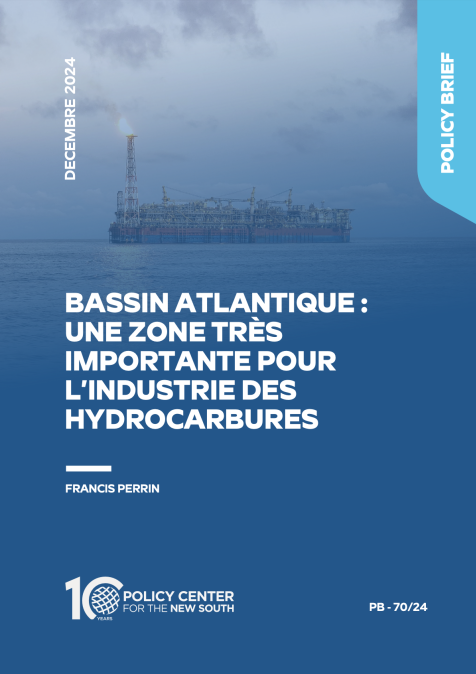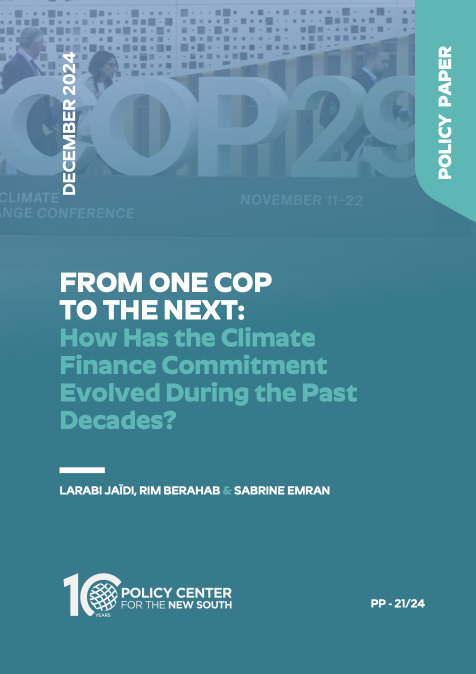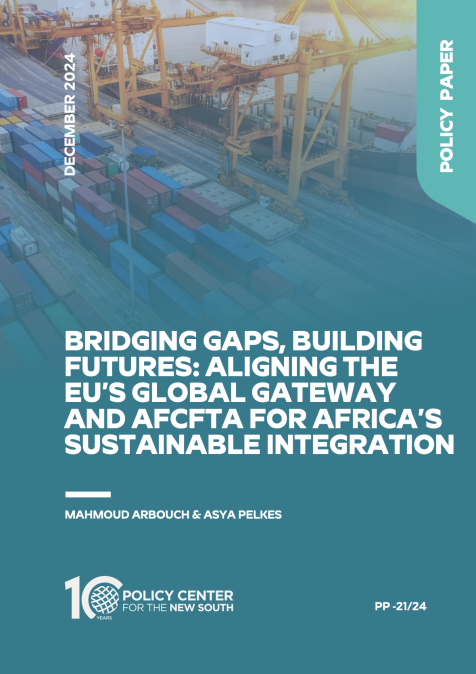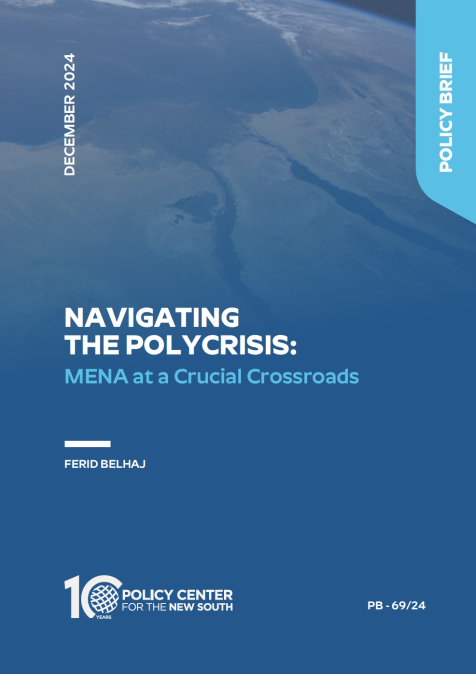RELATED CONTENT
-
 AuthorsDecember 20, 2024Ce papier a été initialement publié sur legrandcontinent.eu À bas bruit, plusieurs pays africains sont en train de monter dans la chaîne de valeur des véhicules électriques. Terrain de bataille de la rivalité sino-américaine sur les matières critiques, l’Afrique pourrait trouver dans la nouvelle fragmentation mondiale des chaînes d’approvisionnement une opportunité. Étude de cas depuis la République démocratique du Congo. Les perturbations successives des chaînes d’approvisionn ...
AuthorsDecember 20, 2024Ce papier a été initialement publié sur legrandcontinent.eu À bas bruit, plusieurs pays africains sont en train de monter dans la chaîne de valeur des véhicules électriques. Terrain de bataille de la rivalité sino-américaine sur les matières critiques, l’Afrique pourrait trouver dans la nouvelle fragmentation mondiale des chaînes d’approvisionnement une opportunité. Étude de cas depuis la République démocratique du Congo. Les perturbations successives des chaînes d’approvisionn ... -
 AuthorsDecember 20, 2024Ce papier a été initialement publié sur legrandcontinent.eu Alors que le monde n’a jamais été si interconnecté, les pays en développement sont confrontés à un paysage économique de plus en plus complexe et souvent hostile, façonné par trois grands groupes de contraintes politiques distinctes. Premièrement, la montée des tendances protectionnistes parmi les grandes puissances a rendu l’environnement mondial plus difficile, en particulier parce que les économies avancées se tourne ...
AuthorsDecember 20, 2024Ce papier a été initialement publié sur legrandcontinent.eu Alors que le monde n’a jamais été si interconnecté, les pays en développement sont confrontés à un paysage économique de plus en plus complexe et souvent hostile, façonné par trois grands groupes de contraintes politiques distinctes. Premièrement, la montée des tendances protectionnistes parmi les grandes puissances a rendu l’environnement mondial plus difficile, en particulier parce que les économies avancées se tourne ... -
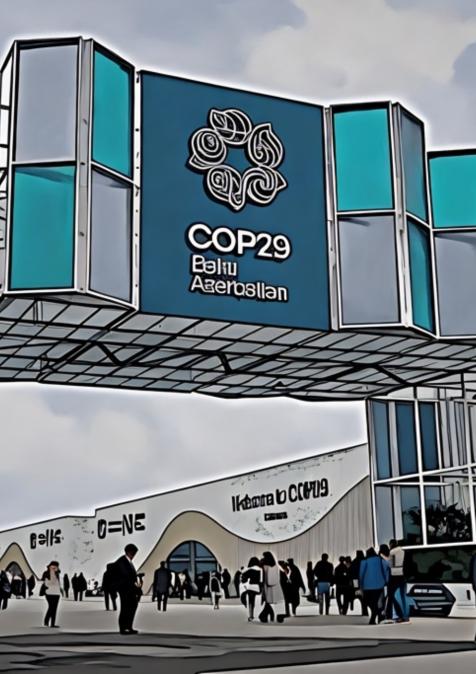 AuthorsDecember 20, 2024The agreement reached at COP 29 to provide $300 billion annually in climate financing to developing countries (excluding China) by 2035 marks a significant milestone, tripling the previous target. Yet, the response from developing countries has been overwhelmingly negative. A statement from the group of least developed countries labeled the agreement “a staggering betrayal of the world’s most vulnerable.” Similarly, representatives from major developing countries like India and Nige ...
AuthorsDecember 20, 2024The agreement reached at COP 29 to provide $300 billion annually in climate financing to developing countries (excluding China) by 2035 marks a significant milestone, tripling the previous target. Yet, the response from developing countries has been overwhelmingly negative. A statement from the group of least developed countries labeled the agreement “a staggering betrayal of the world’s most vulnerable.” Similarly, representatives from major developing countries like India and Nige ... -
AuthorsDecember 20, 2024Le bassin Atlantique est une zone très importante pour l’industrie internationale des hydrocarbures (pétrole et gaz naturel). Elle l’est en termes de réserves, de production et d’exportation de pétrole et de gaz. De plus, son potentiel est loin d’être complètement exploité, ce qui signifie qu’elle continuera à jouer un rôle majeur dans ce secteur pendant de longues années. La partie américaine du bassin Atlantique pose d’ailleurs un sérieux problème aux pays de l’OPEP+, une coalitio ...
-
AuthorsDecember 19, 2024This paper assesses the outcomes of COP29 in Baku, focusing on its achievements and shortcomings in advancing global climate governance. Key milestones included the adoption of the new collective quantified goal (NCQG), the tripling of climate finance commitments to $300 billion annually by 2035, and progress on Article 6 carbon markets to mobilize international cooperation and finance. However, finance remains insufficient to meet the needs of developing countries, and unresolved i ...
-
AuthorsAsya PelkesDecember 19, 2024The European Union’s (EU) Global Gateway initiative, established to enhance global connectivity and sustainable infrastructure, offers a significant opportunity to align with Africa’s development goals under the African Continental Free Trade Area (AfCFTA). However, the challenge lies in whether the Global Gateway can effectively complement AfCFTA’s objectives of boosting intra-African trade and industrialization by addressing critical infrastructure gaps. This paper examines how th ...
-
December 19, 2024This episode examines the contrasting approaches to migration governance between Africa and Europe, where over 70% of African migration occurs within the continent, emphasizing regional integration and development, while European strategies prioritize externalization, border security, a...
-
Lula at Midterm: The G20 Summit in Brazil at the Intersection of Domestic and Foreign Policy AgendasAuthorsNizar MessariDecember 18, 2024The G20 Summit held in November 2024 in Rio de Janeiro, Brazil, under the Brazilian G20 presidency, showed what decentering from the Western agenda and Western domination of world politics could mean. The summit’s main achievement was the constitution of an Alliance against Hunger and Poverty, with a membership of, and funds mobilized from, not only all G20 members, but also from more than 60 other countries. In fact, what the West showed was discomfort at not having its agenda, its ...
-
-
AuthorsDecember 18, 2024The Middle East and North Africa (MENA) region is at a critical juncture, facing an intricate polycrisis defined by interlinked challenges including energy insecurity, water scarcity, migration, conflict, and socio-political fragmentation. These crises are not isolated; their interconnectedness amplifies their impact, creating a destabilizing feedback loop that hinders sustainable development and peacebuilding efforts. This paper explores the concept of polycrisis through the lens o ...

